Qatar Family Residence Visa: Complete Guide for Expats
Qatar, a dynamic and rapidly developing country in the Middle East, has become an attractive destination for expatriates seeking career opportunities and a high quality of life. As the nation continues to grow and diversify its economy, it has implemented various policies to support its expatriate workforce, including a comprehensive Family Residence Visa system.
This system is designed to allow eligible expatriate workers to bring their immediate family members to live with them in Qatar, fostering a sense of stability and community among the foreign workforce. The importance of family reunification cannot be overstated, as it significantly contributes to the well-being and productivity of expatriate workers, ultimately benefiting both the individuals and the Qatari economy.
Understanding Qatar Family Residence Visa
Definition and Purpose
A Qatar Family Residence Visa is an official permit that allows eligible expatriate workers to sponsor their immediate family members to live in Qatar. This visa is distinct from other types of visas and serves the specific purpose of maintaining family unity for foreign workers contributing to Qatar’s development.
Types of Family Members Eligible
The Family Residence Visa typically covers the following family members:
- Spouse
- Children (subject to age restrictions)
- Parents (under certain conditions)
Difference between Family Residence Visa and Family Visit Visa
While both visas allow family members to enter Qatar, they serve different purposes:
Family Residence Visa
- Allows long-term stay in Qatar
- Permits dependents to live with the sponsor
- Requires more stringent eligibility criteria
- Involves a more complex application process
Family Visit Visa:
- Intended for short-term visits
- Usually valid for 30 to 90 days
- Has less stringent requirements
- Simpler application process
Eligibility Requirements
To sponsor family members for a residence visa in Qatar, expatriates must meet specific criteria set by the Qatari government. These requirements ensure that sponsors can financially support their dependents and contribute positively to Qatari society.
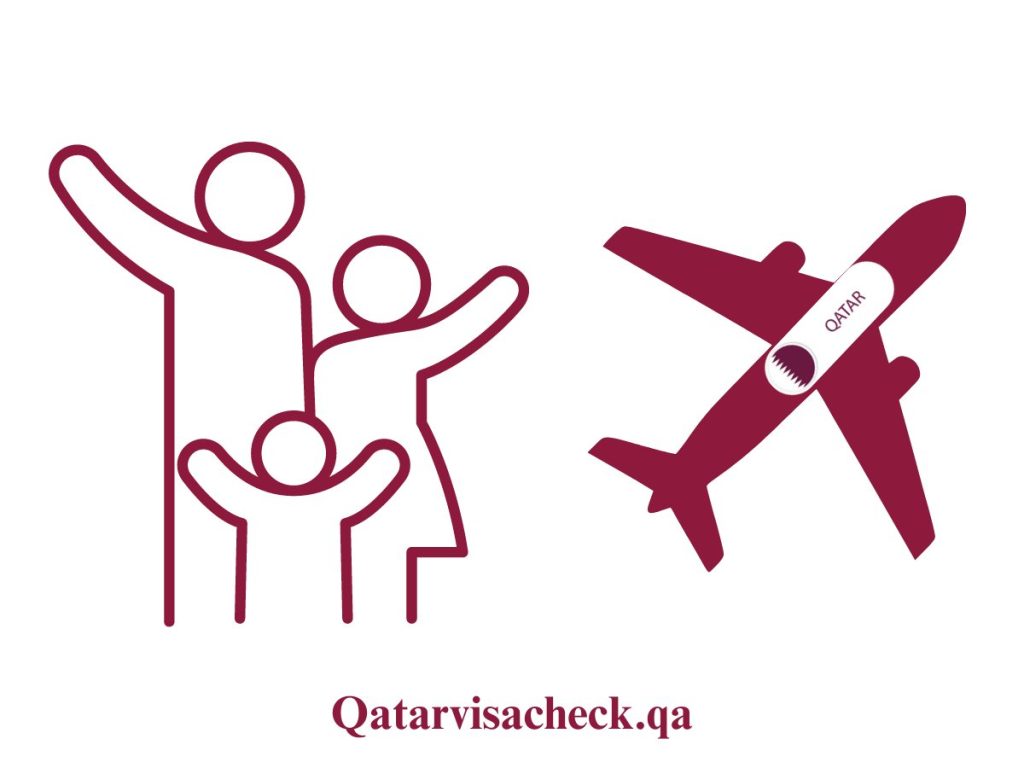
Sponsor Qualifications
Profession Categories
Not all professions are eligible for family sponsorship. The Qatari government maintains a list of approved professions, which typically includes:
- Managerial positions
- Professional roles (e.g., doctors, engineers, teachers)
- Skilled technical positions
Minimum Salary Requirements
One of the key factors in determining eligibility for family sponsorship is the sponsor’s salary. The minimum salary requirement varies based on the number of dependents:
| Number of Dependents | Minimum Monthly Salary (QAR) |
|---|---|
| Spouse only | 10,000 |
| Spouse and children | 15,000 |
Length of Stay in Qatar
Typically, sponsors must have resided in Qatar for a minimum period before being eligible to apply for family sponsorship. This requirement helps ensure that the sponsor has established stability in their employment and living situation.
Employment Status
To be eligible for family sponsorship, the expatriate must:
- Have a valid work visa
- Possess a valid Qatar ID
- Be employed by a company registered in Qatar
Dependent Eligibility Criteria
Age Restrictions for Children
- Male children: Generally eligible up to 25 years old
- Female children: Eligible if unmarried, regardless of age
These age restrictions may have exceptions, particularly for children with special needs or those pursuing higher education.
Marital Status Considerations
- Spouses must be legally married to the sponsor
- Divorced or widowed daughters may be eligible for sponsorship under certain conditions
Parents
Sponsoring parents is subject to stricter conditions:
- Proof of financial dependency on the sponsor
- Absence of other caregivers in the home country
- Meeting higher income requirements
Required Documents
Gathering the necessary documentation is a crucial step in the Family Residence Visa application process. Ensuring all documents are complete, accurate, and properly authenticated can significantly streamline the application process.
List of Essential Documents
Passport copies
- For sponsor and all family members
- Must be valid for at least six months
Marriage certificate
- For sponsoring a spouse
- Must be legally recognized in Qatar
Birth certificates
- For sponsoring children
- To establish the relationship with the sponsor
Employment contract
- To verify the sponsor’s job status and salary
Salary certificate
- Recent certificate from the employer
- Should state the current salary and position
Tenancy contract
- Proof of adequate housing in Qatar
- Must be registered with the municipality
Sponsor’s Qatar ID copy
- To verify the sponsor’s legal status in Qatar
Recent photographs
- Of all family members
- Meeting specific size and background requirements
No Objection Certificate (NOC)
- From the sponsor’s employer
- Approving the family sponsorship
Health insurance documents
- Proof of valid health insurance coverage for all family members
Document Attestation Requirements
Most official documents issued outside Qatar require attestation to be considered valid for the visa application process. The attestation process typically involves:
- Notarization in the country of origin
- Authentication by the Ministry of Foreign Affairs in the issuing country
- Attestation by the Qatar Embassy in the issuing country
Translation Requirements
All documents not in Arabic or English must be officially translated. The translation process involves:
- Translation by a certified translator
- Authentication of the translation by the relevant authorities
- Attestation of the translated documents by the Qatar Embassy
Ensuring proper attestation and translation of documents is crucial to avoid delays or rejections in the visa application process.
Application Process
The application process for a Qatar Family Residence Visa involves several steps, each requiring attention to detail and adherence to specific procedures.
Step-by-Step Guide
Preparation
- Gather all required documents
- Ensure documents are properly attested and translated
Choose Application Method
- Online through Metrash2 app
- Offline at MOI Service Centre
Submit Application
- Fill out the application form accurately
- Upload or present all required documents
Pay Fees
- Application fees
- Health insurance fees (if applicable)
Await Initial Approval
- Application undergoes review by authorities
Receive Entry Permit
- Upon approval, an entry permit is issued for family members
Family Members Enter Qatar
- Within the validity period of the entry permit
Complete Post-Arrival Procedures
- Medical examination
- Fingerprinting
- Issuance of Qatar ID cards
Online Application through Metrash2 App
The Metrash2 app, developed by the Ministry of Interior, offers a convenient way to apply for family residence visas:
- Download and install the Metrash2 app
- Register and create an account
- Navigate to the visa services section
- Select “Family Residence Visa” application
- Fill out the required information
- Upload scanned copies of all necessary documents
- Pay the application fees online
- Submit the application and receive a reference number
Offline Application at MOI Service Centre
For those who prefer in-person applications:
- Visit the nearest MOI Service Centre
- Collect the application form
- Fill out the form with accurate information
- Submit the form along with all required documents
- Pay the application fees
- Receive a receipt and reference number for tracking
Processing Times and Fees
Processing times can vary depending on various factors:
- Completeness of the application
- Current workload of the immigration department
- Complexity of the case
On average, processing times range from 2 to 4 weeks, but this can be longer in some cases.
Fees associated with the Family Residence Visa application include:
- Application fee
- Entry permit fee
- Health insurance fee (if applicable)
- Residence permit fee
It’s advisable to check the Ministry of Interior website for the most current fee structure, as these can change periodically.
Post-Arrival Procedures
Once family members arrive in Qatar on their entry permits, several important procedures must be completed to finalize their residence status.
Medical Examination Requirements
All family members above a certain age (typically 12 years) must undergo a medical examination at designated health centers. This examination includes:
- Blood tests (including tests for HIV, Hepatitis B, and Hepatitis C)
- Chest X-ray (to screen for tuberculosis)
- General physical examination
Fingerprinting Process
Biometric data collection is a crucial step in the residence permit process:
- Visit a designated fingerprinting center
- Present the entry permit and passport
- Undergo digital fingerprinting
- Facial photograph taken for the Qatar ID card
Obtaining Qatar ID Cards
The Qatar ID card is an essential document for residents, serving multiple purposes:
- Official identification
- Access to government services
- Proof of legal residency
To obtain the ID card:
- Complete medical examination and fingerprinting
- Submit the results to the immigration department
- Pay the ID card issuance fee
- Collect the ID card from the designated center
The ID card is typically valid for the duration of the residence permit and must be carried at all times.
Visa Validity and Renewal
Understanding the validity period of the Family Residence Visa and the renewal process is crucial for maintaining legal status in Qatar.
Duration of Family Residence Visa
Family Residence Visas in Qatar are typically issued for a period of one to three years, aligning with the sponsor’s residence permit. The exact duration may depend on:
- The sponsor’s contract length
- The type of employment
- Government policies at the time of issuance
Renewal Process and Requirements
Renewing a Family Residence Visa involves several steps:
Initiate Renewal Process
- Start at least 30 days before visa expiry
- Can be done through Metrash2 app or at MOI Service Centre
Gather Updated Documents
- New salary certificate
- Updated tenancy contract
- Renewed health insurance (if applicable)
Submit Renewal Application
- Fill out the renewal form
- Provide updated documents
Pay Renewal Fees
- Fees may vary based on visa duration and number of dependents
Medical Examination
- May be required, especially for adult dependents
Biometric Update
- Fingerprints and photographs may need updating
Collect New Residence Permits
- Once approved, new Qatar ID cards are issued
It’s important to note that failing to renew the visa before its expiry can result in fines and legal complications.
Special Cases and Exceptions
Qatar’s family visa policies include provisions for special circumstances, recognizing that family situations can be complex and diverse.
Sponsoring Adult Children
While there are age limits for sponsoring children, exceptions exist:
- Male children over 25 may be sponsored if they are:
- Pursuing full-time education in Qatar
- Have special needs requiring care
- Unmarried daughters can be sponsored regardless of age, provided they:
- Are not employed
- Remain dependent on the sponsor
Sponsoring Parents
Sponsoring parents is possible but subject to stricter conditions:
- Proof of financial dependency on the sponsor
- Absence of other caregivers in the home country
- Meeting higher income requirements set by the government
- Providing comprehensive health insurance coverage
The process often requires additional approvals and may involve a more thorough review by immigration authorities.
Work Permits for Spouses and Children
Family members on residence visas may be eligible to work under certain conditions:
Spouses:
- Can apply for a work permit with the sponsor’s approval
- Must find an employer willing to sponsor their work visa
Adult Children:
- Those over 18 may be eligible for work permits
- Process involves transferring sponsorship to the employer
COVID-19 Related Adjustments
The global pandemic has led to several temporary changes in visa procedures:
- Enhanced health screening requirements
- Quarantine measures for new arrivals
- Temporary suspension or modification of certain visa services
Troubleshooting Common Issues
Even with careful preparation, applicants may encounter challenges during the visa process. Understanding common issues and their solutions can help navigate these obstacles effectively.
Visa Rejection Reasons and Solutions
Common reasons for visa rejections include:
Incomplete Documentation
- Solution: Double-check all required documents before submission
- Ensure all documents are properly attested and translated
Failure to Meet Eligibility Criteria
- Solution: Carefully review and understand all eligibility requirements
- Consult with immigration experts if unsure about specific criteria
Discrepancies in Information
- Solution: Ensure all information provided is consistent across documents
- Promptly correct any errors or inconsistencies
Health-Related Issues
- Solution: Address any health concerns flagged during medical examinations
- Provide additional medical documentation if required
Security Concerns
- Solution: If applicable, provide clarification or additional information
- Seek legal advice if facing complex security-related issues
Extending Visit Visas to Residence Visas
In some cases, family members may enter Qatar on a visit visa and wish to convert it to a residence visa. This process involves:
- Initiating the residence visa application before the visit visa expires
- Ensuring all eligibility criteria for family residence visas are met
- Submitting a complete application with all required documents
- Paying the necessary fees for visa conversion
It’s important to note that this process is not always guaranteed and depends on current immigration policies and individual circumstances.
Frequently Asked Questions
- Can I sponsor my siblings?
Generally, Qatar’s family visa policy does not include siblings. Sponsorship is typically limited to spouse, children, and parents under specific conditions. - Is there an age limit for sponsoring children?
Yes, male children can usually be sponsored up to age 25, while unmarried daughters can be sponsored regardless of age. - Can my spouse work on a family residence visa?
A: Your spouse can work after obtaining a separate work permit. The process involves getting approval from the current sponsor (you) and the prospective employer. - How long does the family visa application process take?
Processing times can vary, but typically range from 2-4 weeks. Complex cases may take longer. - What happens if I lose my job? How does it affect my family’s visas?
A: If you lose your job, you typically have a grace period to find new employment. If unsuccessful, you and your family may need to leave Qatar or transfer to a new sponsor. - Can I sponsor my parents-in-law?
Sponsoring parents-in-law is generally more challenging and subject to stricter conditions. It often requires proving their dependency on you. - Is there a limit to how many family members I can sponsor?
While there’s no strict limit, your ability to sponsor depends on your salary and ability to financially support your dependents. The higher your salary, the more family members you may be able to sponsor. - Can my children study in Qatar on a family residence visa?
Yes, children on family residence visas can enroll in schools in Qatar without needing a separate student visa. However, they may need to provide additional documentation for school enrollment. - How often do family members need to undergo medical tests?
Medical tests are typically required upon initial entry and may be required during visa renewals, especially for adults. The frequency can vary, but it’s often annually or every two years. - Can I travel outside Qatar while my family’s visa application is in process?
It is generally advisable to remain in Qatar during the application process, as your presence may be required for various procedures. If travel is necessary, consult with the immigration authorities beforehand. - What happens if a family member fails the medical test?
If a family member fails the medical test, they may be denied a residence permit. In some cases, additional medical examinations or treatments may be required before reapplication. - Can I sponsor my wife if she’s pregnant?
Yes, you can sponsor your pregnant wife. However, you may need to provide additional medical documentation and ensure proper health insurance coverage for prenatal care and delivery. - Is it possible to change sponsors for a family residence visa?
Changing sponsors for a family residence visa is possible but requires careful procedure. It typically involves cancelling the current visa and applying for a new one under the new sponsor. - Can family members on a residence visa own businesses in Qatar?
Family members on a residence visa generally cannot own businesses independently. However, they may be able to invest in certain business activities with proper permissions and sponsorship.

Ammara Abdullah is an experienced writer and editor specializing in technology and digital trends. With over 5 years of experience, she produces insightful articles on emerging tech, consumer electronics, and digital culture. Ammara holds a degree in journalism and is passionate about making complex topics accessible to readers.

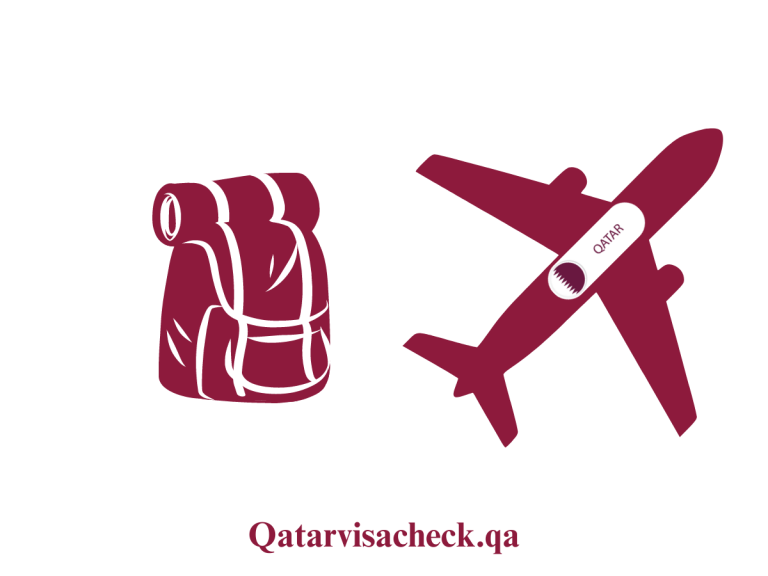

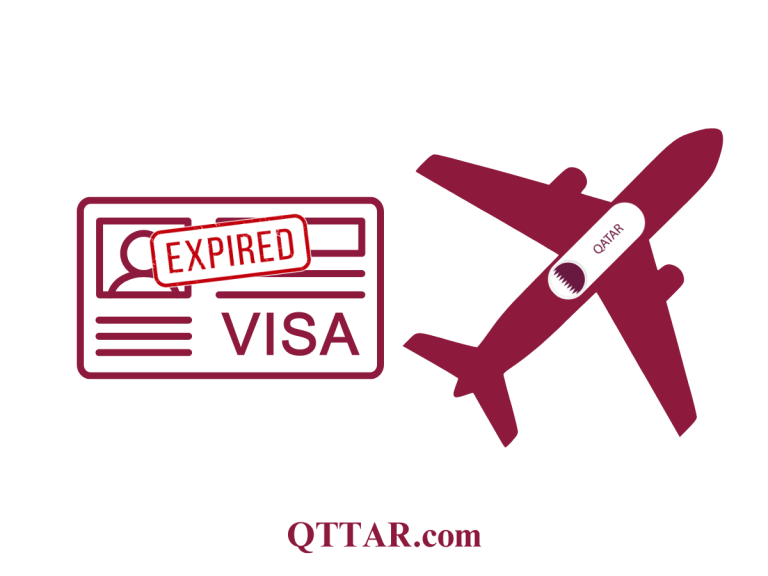
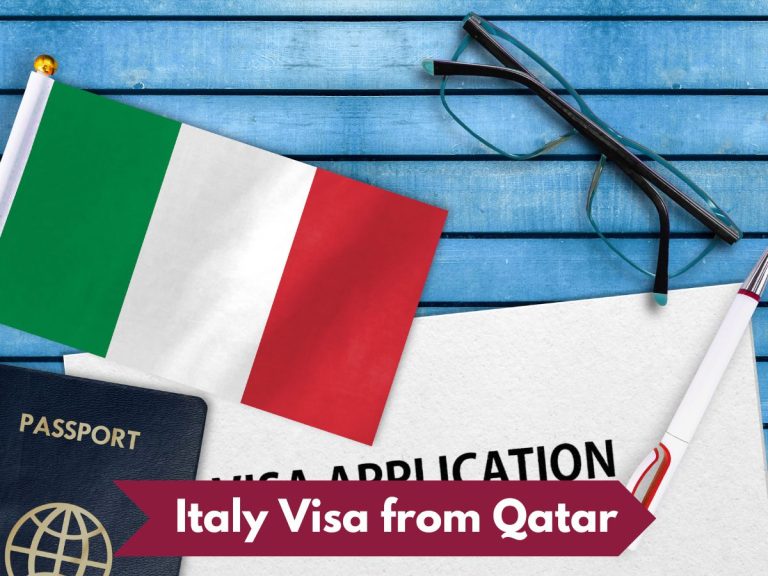
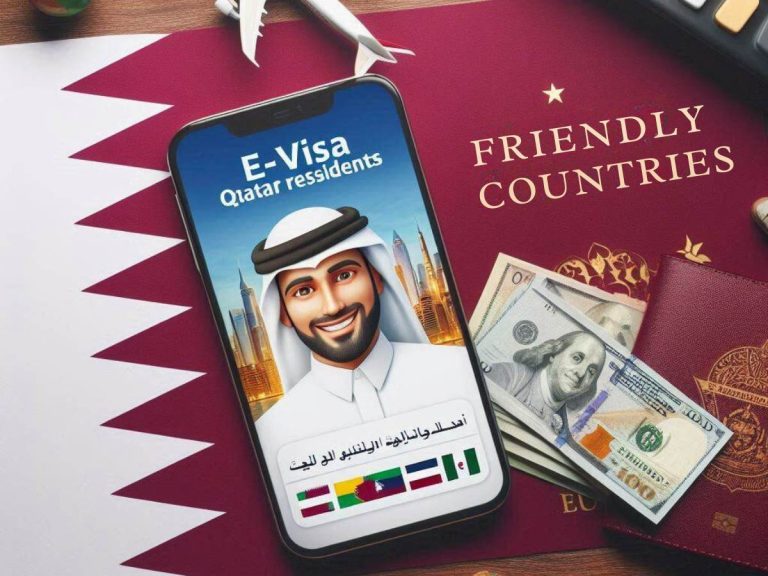
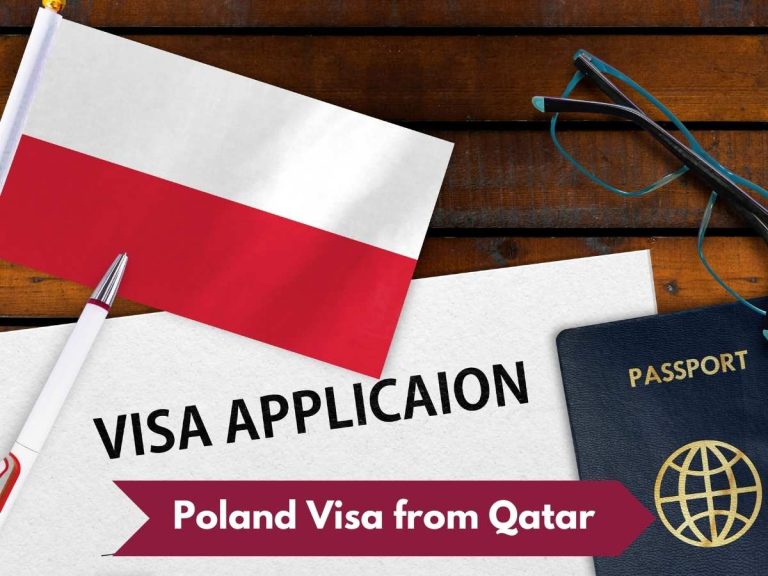
Dear Who read this comment who responsable to facilitate visa sponsors in Qatar .
Qatar is my Dream country sence my childhood age know professional pharmacist and work in diffrent kind of possition in Ethiopia .Dear /Mr How can i gate residential vissa and work permit
Dear Teyib Kasim,
Thank you for your interest in Qatar. As a professional pharmacist, you may be eligible for a work visa in Qatar. However, to obtain a residence visa and work permit, you typically need to:
1. Find a job offer from a Qatari employer
2. Have your employer sponsor your work visa
3. Meet the eligibility requirements, including having the necessary qualifications and experience
The process usually involves:
– Your employer applying for your work visa
– Obtaining necessary approvals from Qatari authorities
– Completing medical examinations upon arrival
– Finalizing your residence permit
It’s important to note that you cannot directly apply for a residence visa without a job offer and sponsor in Qatar. I recommend exploring job opportunities in Qatar’s healthcare sector and contacting potential employers who can guide you through the specific requirements for pharmacists.
Best of luck with your aspirations to work in Qatar!